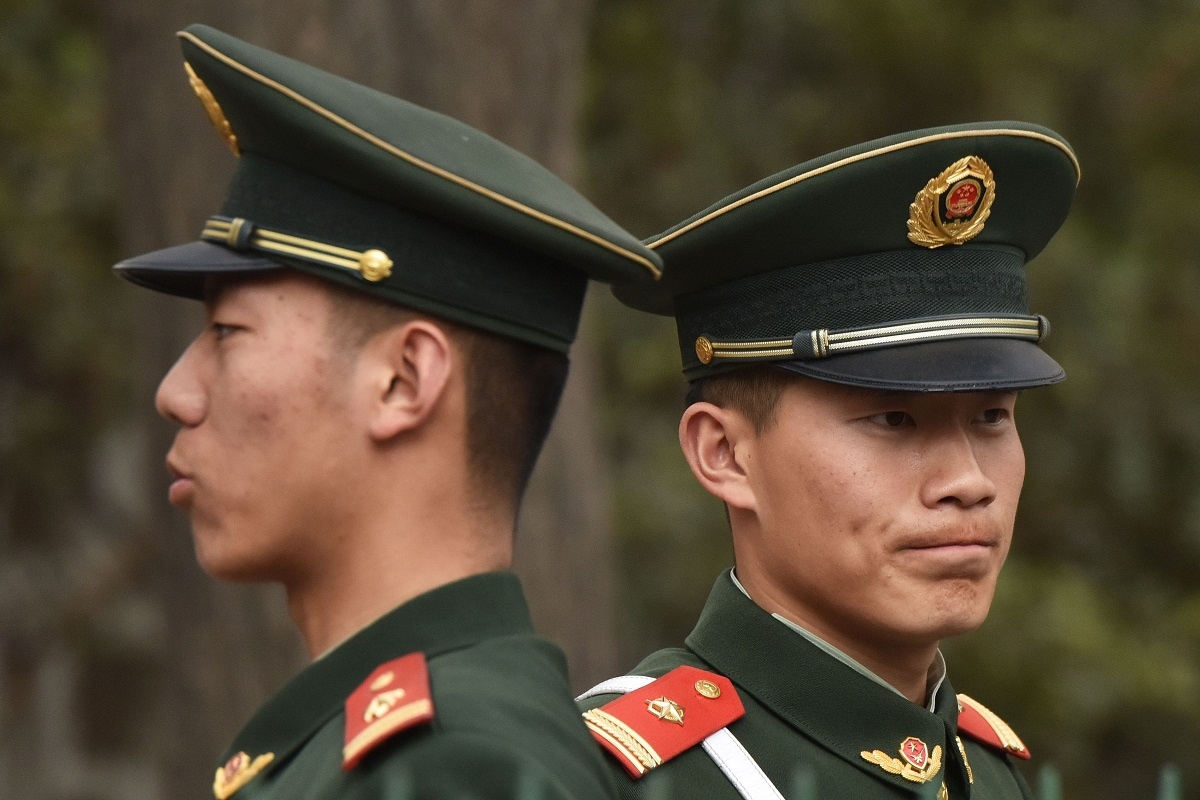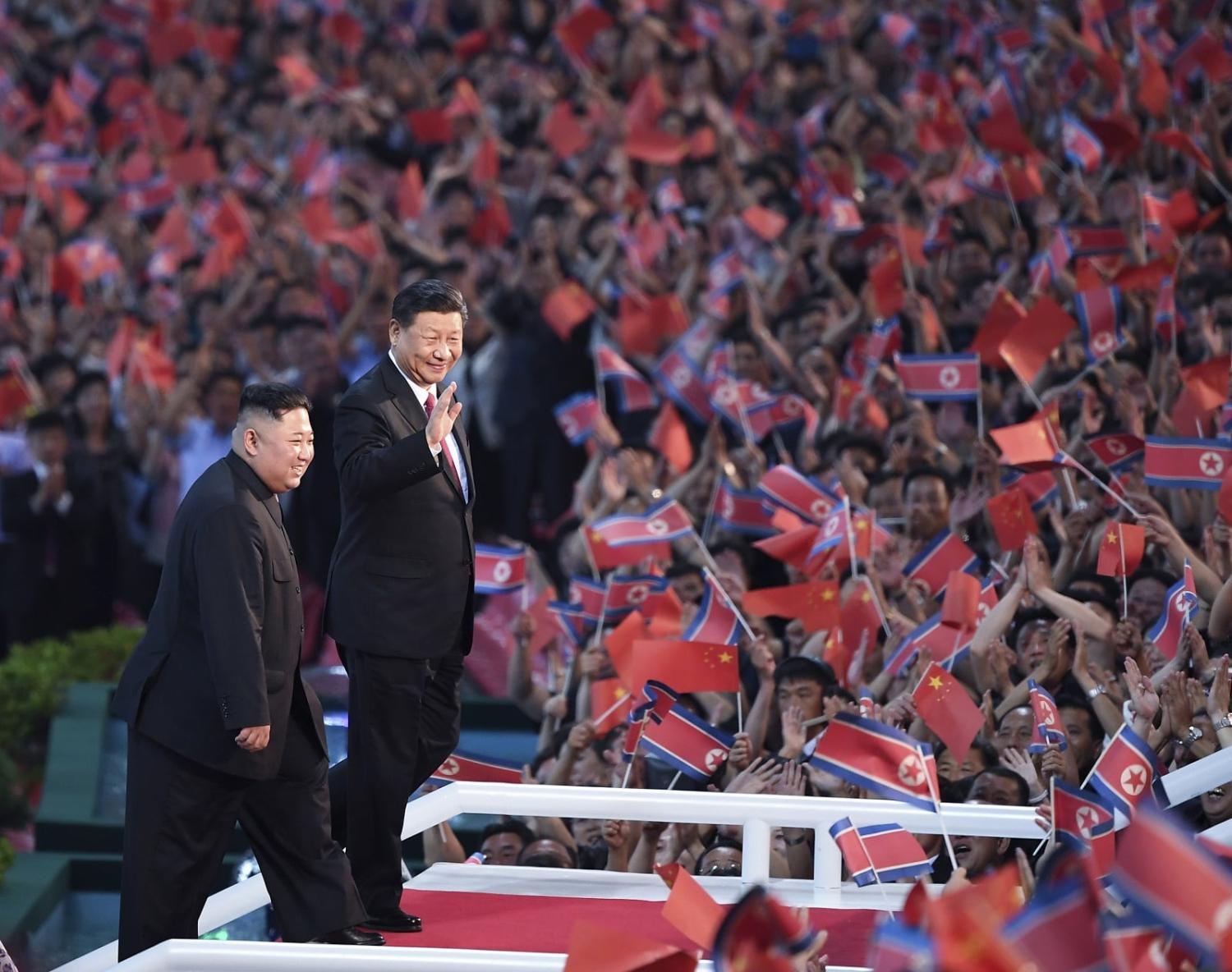It’s easily forgotten now, but just over five years ago North Korea and China were not getting along. Beijing was adamant about implementing United Nations sanctions as a punishment for Pyongyang’s nuclear and missile testing. China had increased its military facilities, bolstered its defence capabilities, and constructed refugee camps along the China–North Korea border to prepare for any Korean contingencies. China even discussed the prospect of a North Korean regime collapse with the United States, perhaps anticipating such joint US–China economic and military pressure might contribute to North Korea’s decision to de-escalate tensions to break out of complete isolation.
How times change.
North Korea and China have just celebrated the 62nd anniversary of the 1961 Treaty of Friendship, Cooperation, and Mutual Assistance, having renewed the Sino-North Korean agreement for another 20 years in July 2021. Ever since North Korea mended fences with China in early 2018, it has been a regular occurrence for the two countries to emphasise their “like lips and teeth”, “immortal and invincible” friendship and “unbreakable” relationship. In contrast to the now hostile relations with the United States and South Korea, and the failed attempts to have sanctions lifted, North Korea’s charm offensive with China has been a resounding success.
The intense focus on US–North Korea and North Korea–South Korea summits, when they do occur, paints a distorted picture of North Korea’s diplomacy. In these efforts, Pyongyang’s most important target has always been Beijing.
It is worth recalling that in early 2018, North Korea’s chairman Kim Jong-un paid an unscheduled visit to China’s Xi Jinping to brief his ally on the country’s next moves, weeks before planned summits with the United States and South Korea. It was Kim’s first-ever overseas trip since becoming North Korea’s supreme leader in 2011. Kim would meet Xi five times between March 2018 and June 2019. In the same period, he met with South Korea’s President Moon Jae-in four times and US President Donald Trump three times.

North Korea’s rapprochement with China has been vital for a number of reasons, not the least of which is that it has weakened international sanctions against Pyongyang. It has also contained the fallout from the collapse in diplomacy with the United States and South Korea, helped it weather international condemnation for its return to missile testing, and assisted in containing the Covid-19 pandemic as well as tightening state control in the process.
After resuming relations with North Korea, China led the call in 2018 for sanctions relief even as the Trump–Kim Singapore summit yielded few concrete results. Beijing quickly loosened trade restrictions with Pyongyang and undermined the US maximum pressure campaign in the process. It also supported many of North Korea’s negotiating positions, the most important of those being sanctions relief before denuclearisation, in contrast to US insistence on denuclearisation first. Such support would be critical to North Korea shifting the blame for failed diplomacy onto the United States, and also for China’s continued push for early sanctions relief as a means to revive dialogue and avoid a return to US–North Korea confrontation.
Although North Korea resumed long-range ballistic missile tests after engagement with the United States and South Korea failed, China continued to provide diplomatic cover for Pyongyang. In May 2022, China along with Russia vetoed a US-sponsored resolution imposing new sanctions on North Korea for the tests. The last time the UN Security Council was able to adopt a sanctions resolution was in December 2017, before the thaw in relations between North Korea and China.
China has also been supporting North Korea in other practical ways. In May 2022, it provided North Korea with medical supplies and experts when the country declared a national outbreak of Covid-19. And in April 2021, China sent secret food aid to North Korea, which was then under total lockdown. North Korea turned down US and South Korean aid and relied on Chinese Covid-19 vaccines for its troops and civilians. Beijing, it seems likely, has assisted Pyongyang construct a border fence to maintain stability and has stepped up surveillance on North Korean defectors living in China. Such assistance is in line with the ongoing North Korean government crackdown on cross-border smuggling and information exchange under the pretext of pandemic control. Despite border tightening, in the first three months of 2023, Chinese exports to North Korea approached pre-pandemic levels. Remarkably, China brought in items specifically requested by the North Korean government to meet the demands of the country’s elites, which did little to alleviate the general population’s food shortage problem. China continues to receive North Korean workers, in violation of sanctions.
The benefits of an amicable China–North Korea relationship surely outweigh the drawbacks of diplomacy collapse, and this is the forgotten success of the North Korea charm offensive. Having Chinese backing will likely reduce the possibility of North Korea resuming talks with the United States and South Korea, and certainly while North Korea is improving its solid-fuel intercontinental ballistic missile technology. However, so long as Pyongyang does not test further nuclear devices in defiance of Chinese advice, Beijing is pleased with the post-2018 state of China–North Korea relations, and this is what North Korea wants, too.

